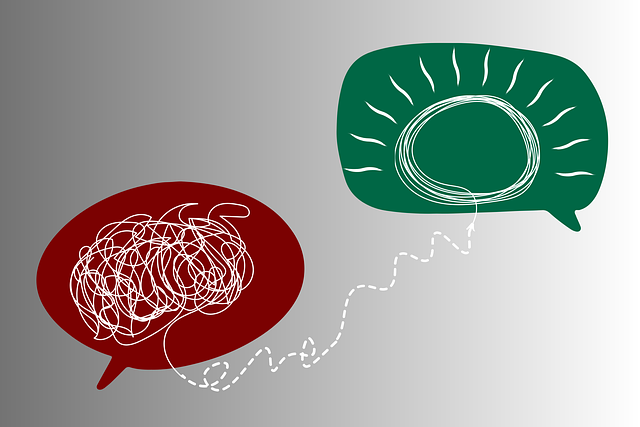Mental illness diagnoses are a complex process involving professional assessments, self-reported symptoms, and medical history reviews. Traditional methods include structured interviews, questionnaires, and observation by psychiatrists, psychologists, and therapists. However, symptom overlap and cultural biases in diagnostic tools pose challenges. Boulder Exposure and Response Prevention Therapy (BERP) is an innovative therapy for anxiety disorders, showing promising results through exposure to feared situations and preventing avoidance behaviors. Community outreach programs and mental wellness coaching also play vital roles in improving diagnosis accuracy and timely access to care. The integration of advanced language models like BERT into clinical practice can further enhance diagnosis accuracy by understanding complex linguistic nuances. Challenges include data privacy, algorithm development, and integration with existing services, but ongoing research aims to refine crisis interventions for optimal patient outcomes.
Mental illness diagnosis accuracy is a critical aspect of patient care, yet remains challenging. This article explores current limitations in mental health assessments and introduces innovative solutions. We focus on the Boulder Exposure and Response Prevention Therapy (BERT), a cutting-edge approach designed to enhance diagnostic precision. Additionally, we discuss therapeutic interventions that can improve accuracy, highlighting their potential impact on clinical practice. By integrating BERT into standard care, mental health professionals can navigate complex diagnoses more effectively.
- Understanding Mental Illness Diagnoses: The Current Landscape
- Boulder Exposure and Response Prevention Therapy (BERT): A Novel Approach
- Enhancing Diagnosis Accuracy through Therapeutic Interventions
- Integrating BERT into Clinical Practice: Challenges and Future Directions
Understanding Mental Illness Diagnoses: The Current Landscape

Mental illness diagnoses are a complex and intricate process, often involving a combination of professional assessments, self-reported symptoms, and medical history reviews. The current landscape is characterized by a growing awareness of mental health issues but also a concern over misdiagnosis rates, which can lead to ineffective treatments and prolonged suffering for individuals. Traditional diagnostic methods primarily rely on the expertise of psychiatrists, psychologists, and therapists who use structured interviews, questionnaires, and observation to identify specific disorders based on standardized criteria.
While these approaches have improved accuracy, they are not without limitations. Many mental health conditions overlap in symptoms, making differentiation challenging. Furthermore, cultural biases in diagnostic tools can affect their validity across diverse populations. Boulder Exposure and Response Prevention Therapy (BERP) is one such innovative therapy gaining recognition for its effectiveness in treating anxiety-related disorders. By focusing on exposure to feared situations and preventing avoidance behaviors, BERP has shown promising results in clinical trials. Additionally, Community Outreach Program Implementation plays a crucial role in promoting mental wellness by educating communities about early intervention strategies, thus potentially improving diagnosis accuracy and timely access to appropriate care.
Boulder Exposure and Response Prevention Therapy (BERT): A Novel Approach

Boulder Exposure and Response Prevention Therapy (BERT) is a novel therapeutic approach that has shown promise in enhancing mental illness diagnosis accuracy, particularly for anxiety disorders. This therapy combines exposure therapy with response prevention techniques, focusing on helping individuals confront their fears in a controlled environment and learn to manage their responses without avoidance or safety behaviors. BERT aims to build inner strength and resilience by encouraging clients to develop effective coping strategies, fostering compassion cultivation practices, and promoting better stress management skills.
Through gradual and structured exposure to anxiety-provoking situations, BERT enables patients to understand the connection between their thoughts, feelings, and behaviors, ultimately reducing the impact of negative thought patterns. By preventing avoidance and safety behaviors, individuals learn to respond differently, leading to more accurate assessments of their symptoms and a clearer understanding of their mental health status. This innovative therapy holds potential for improving diagnosis accuracy, providing personalized treatment plans, and empowering individuals to develop lasting strategies for managing their mental health effectively.
Enhancing Diagnosis Accuracy through Therapeutic Interventions

Accurately diagnosing mental illness is a complex process that often involves a multidisciplinary approach. One innovative strategy gaining traction in this realm is Boulder Exposure and Response Prevention (BERP) therapy, which focuses on gradually exposing individuals to fear-provoking situations while teaching them coping mechanisms to manage their responses. This evidence-based method has shown promising results in enhancing diagnosis accuracy, especially for conditions like anxiety disorders and Obsessive-Compulsive Disorder (OCD).
Beyond BERP, Public Awareness Campaigns Development plays a pivotal role in fostering understanding and empathy within communities. By promoting Positive Thinking and encouraging open conversations about mental wellness, these campaigns contribute to an environment where individuals feel more comfortable seeking help without stigma. Additionally, Mental Wellness Coaching Programs Development equips individuals with early intervention skills, enabling them to recognize signs of distress and take proactive measures toward maintaining or improving their mental health.
Integrating BERT into Clinical Practice: Challenges and Future Directions

The integration of BERT (Bidirectional Encoder Representations from Transformers) into clinical practice offers promising avenues for enhancing mental illness diagnosis accuracy, particularly in areas like Boulder Exposure and Response Prevention Therapy (BERT). This advanced language model, pre-trained on vast amounts of text data, has demonstrated remarkable capabilities in understanding complex linguistic nuances. By leveraging BERT, therapists can gain deeper insights into a patient’s language patterns and contextual cues, which are often indicative of underlying mental health conditions.
However, implementing BERT in clinical settings presents certain challenges. These include ensuring data privacy and security, as well as developing robust algorithms to interpret the model’s outputs accurately. Future directions involve integrating BERT with existing Trauma Support Services and Mental Health Policy Analysis and Advocacy frameworks. Additionally, refining Crisis Intervention Guidance based on BERT insights can lead to more precise and timely interventions. This ongoing research and collaboration between technology experts and mental health professionals aim to optimize BERT’s potential in transforming clinical practice and improving patient outcomes.
The pursuit of enhancing mental illness diagnosis accuracy has led to innovative approaches like Boulder Exposure and Response Prevention Therapy (BERT), which shows promise in improving diagnostic clarity. By integrating therapeutic interventions that challenge current paradigms, we can move towards a more nuanced understanding of mental health conditions. As BERT and similar methods continue to evolve, their integration into clinical practice holds the key to better supporting individuals seeking help and ensuring more accurate diagnoses. Further research and collaboration between professionals will be essential to unlocking the full potential of these advancements in mental health care.














